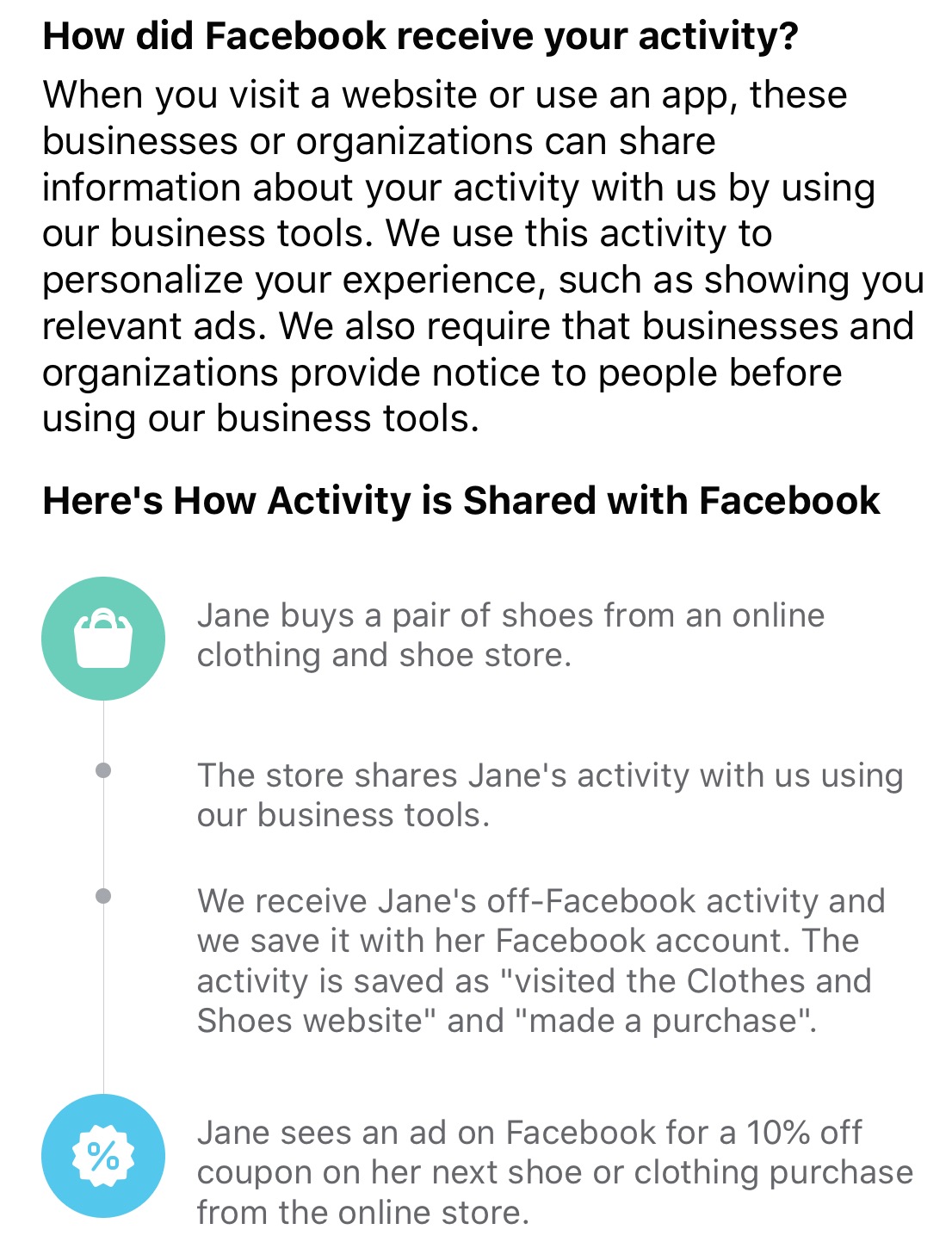Here's How To Prevent Facebook From Tracking You Across Apps And Websites
- Facebook argues that tracking user behavior across apps and websites allows it to serve up personalized ads that are helpful to consumers.
- While an upcoming iOS update will make this functionality opt-in only, there's already an easy way to prevent Facebook from tracking your behavior via the mobile app.
- Facebook recently took out full-page ads in several newspapers and argued that Apple's forthcoming iOS update will hurt small businesses and change the internet "for the worse."
While some people don't really care about Facebook tracking them across apps and serving up personalized ads, many other people understandably find the practice intrusive, downright eerie, and emblematic of everything wrong with current technological practices.
If you find yourself in the latter group, the good news is that it's pretty easy to prevent Facebook from keeping tabs on what you're up to and searching for while outside of the walled garden that is the Facebook app.
To get started, simply open up the Facebook app and select the Hamburger Menu icon — signified by three horizontal lines stacked atop each other — located in the bottom right-hand corner.
From there, start scrolling down a bit until you see the Settings & Privacy option and click on the dropdown menu. Select Settings and then scroll down until you see the Your Facebook Information heading. Right below that, you should see an option that says Off-Facebook Activity.
Click that particular setting, select the Clear History option, and you're good to go.
Facebook's ability to track users has become incredibly controversial in recent months, especially in light of an iOS 14 update that will require apps to display a prompt about data collection processes.
Apple writes that "App Tracking Transparency will require apps to get the user's permission before tracking their data across apps or websites owned by other companies."
"Apple's policy will prohibit certain data collection and sharing unless people opt into tracking on iOS 14 devices via the prompt," Facebook wrote in response. "As more people opt out of tracking on iOS 14 devices, ads personalization and performance reporting will be limited for both app and web conversion events."
Facebook naturally views this as a losing proposition for consumers. The company uses the following example on its app to highlight how personalized ads are beneficial to consumers.

Facebook last December went so far as to take out several full-page ads in papers like The Wall Street Journal where it said Apple's new privacy framework "will change the internet as we know it–for the worse."
The ad reads in part:
Take your favorite cooking sites or sports blogs. Most are free because they show advertisements.
Apple's change will limit their ability to run personalized ads. To make ends meet, many will have to start charging you subscription fees or adding more in-app purchases, making the internet much more expensive and reducing high-quality free content.
Beyond hurting apps and websites, many in the small business community say this change will be devastating for them too, at a time when they face enormous challenges. They need to be able to effectively reach the people most interested in their products and services to grow.
Apple, of course, sees things much differently. During an appearance in Brussels last month, Apple CEO Tim Cook took a few shots at Facebook without explicitly mentioning the company by name:
Technology does not need vast troves of personal data stitched together across dozens of websites and apps in order to succeed. Advertising existed and thrived for decades without it, and we're here today because the path of least resistance is rarely the path of wisdom.
If a business is built on misleading users on data exploitation, on choices that are no choices at all, then it does not deserve our praise. It deserves reform.
We should not look away from the bigger picture. In a moment of rampant disinformation and conspiracy theories juiced by algorithms, we can no longer turn a blind eye to a theory of technology that says all engagement is good engagement, the longer the better, and all with the goal of collecting as much data as possible.
Too many are still asking the question 'How much can we get away with?' when they need to be asking 'What are the consequences?
Apple's App Tracking Transparency feature is set to launch during the first half of the year.
